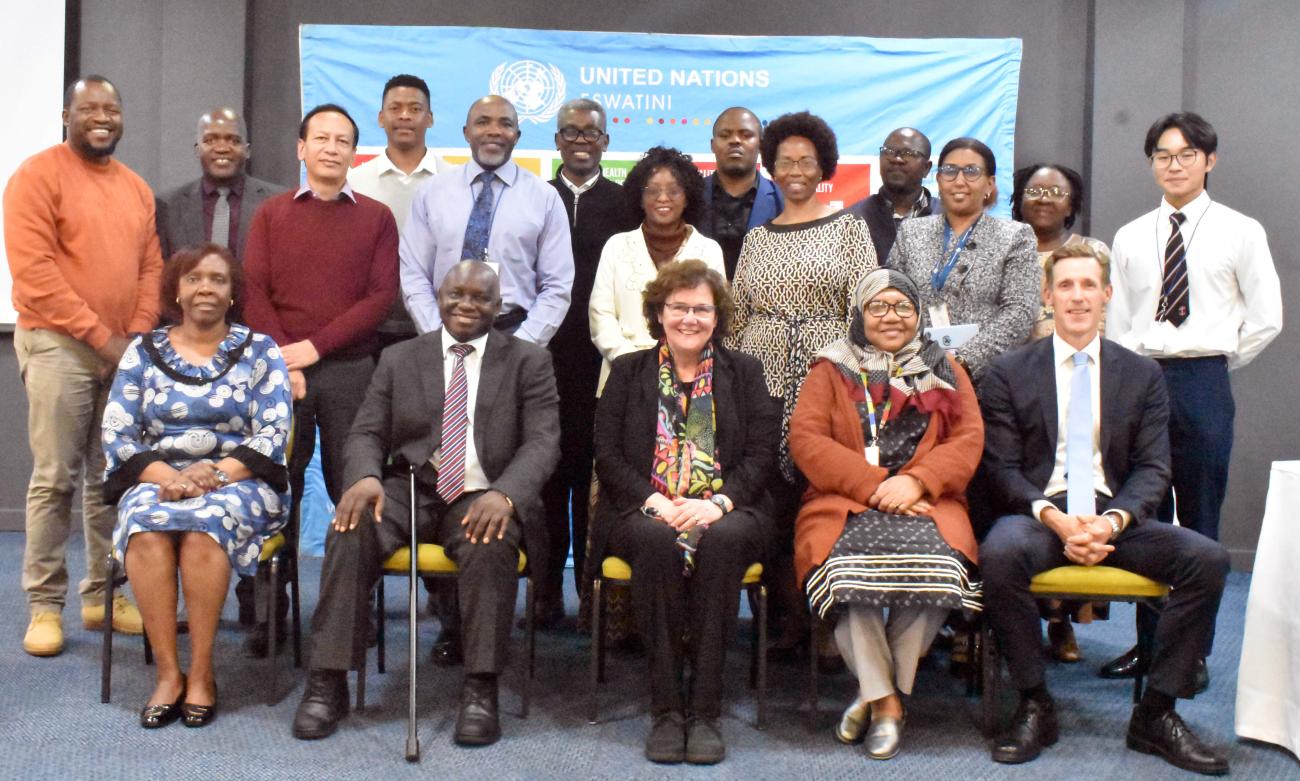The United Nations Country Team (UNCT) in Eswatini, has embarked on a pivotal five-day workshop aimed at systematically exploring the future to inform the development of the 2025 Common Country Analysis (CCA).
Taking place from 19 to 23 August 2024 in Mbabane, the first day of the workshop was attended by UN heads of agencies and senior staff. From 20-23 August, the workshop will bring together government, civil society academic UN programme staff and other partners to discuss strategic foresight and systems thinking ahead of writing of the new United Nations Sustainable Development Cooperation Framework (UNSDCF) for 2026-2030.
The workshop will equip participants with the knowledge and tools to engage in futuristic analysis and identifying the interconnections between the drivers of both development challenges and the identified solutions. Strategic foresight and systems thinking methodologies are increasingly recognized as essential for navigating the complexities and uncertainties that characterize today’s world and which affect how countries such as Eswatini can sustain their development trajectory.
In his opening remarks, Mr. George Wachira, the United Nations Resident Coordinator in Eswatini, emphasized the importance of adopting a forward-looking approach. “In a world marked by volatility, uncertainty, complexity, and ambiguity, it is imperative that we not only anticipate possible futures but also plan strategically to make informed decisions today,” he stated. “This workshop is a critical step in ensuring that our analysis and subsequent frameworks are not only comprehensive but also adaptable to the evolving landscape.”
The workshop commenced with an intensive session on mega-trends and the introduction of futures thinking, facilitated by Ms. Tanja Hichert, a strategic foresight expert with extensive experience in global development. Participants engaged in deep dives into the conceppts, learning how these approaches can help work with complex problems and foster innovative solutions.
A significant highlight of the day was the interactive demonstration of the Three Horizons Framework, a tool that enables participants to imagine preferred futures and identify the systemic changes which could help transition form the prevailing dominant models to the preferred futures. Through this exercise, participants explored the potential trajectories of critical sectors such as health, energy and social development, identifying opportunities for strategic intervention and innovation.
The strategic foresight and systems thinking methodologies introduced during the workshop will play a crucial role in the subsequent days, where Eswatini stakeholders and task teams will engage in practical foresight exercises. These activities are designed to generate rich, actionable insights that will inform the 2025 Common Country Analysis (CCA) which will precede the development of the new Cooperation Framework for 2026-2030, ensuring it is an integrated and forward-looking document that addresses the interconnected challenges facing Eswatini.
As the workshop progresses, the focus will shift to identifying high-impact uncertainties and constructing scenarios that will guide the strategic direction of the UN’s efforts in Eswatini. The outcomes of these sessions will be instrumental in shaping the new UNSDCF, ultimately contributing to better lives for all Emaswati.
As the world continues to change rapidly, the ability to think strategically about the future and to act on these insights today is more important than ever. The Strategic Foresight and Systems Thinking Workshop in Eswatini is a testament to the UN’s proactive approach in addressing the needs of the future, ensuring that the plans and actions taken today are sustainable, inclusive, and effective.



















